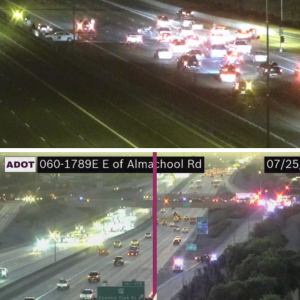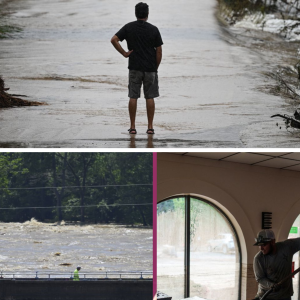Texas emergency chief slams San Antonio use of Chinese radios during July 4 floods
AUSTIN, Texas – Delayed alerts. Overwhelmed responders. Poor radio communication.
A special joint hearing held Tuesday at the Texas Capitol exposed at least three critical failures that may have cost lives during the deadly July 4 floods.
One of the biggest revelations came from Chief Nim Kidd, head of the Texas Division of Emergency Management and a former San Antonio firefighter. Kidd described showing up in the flood zone with his radio—only to find he couldn’t communicate with his own San Antonio Fire Department colleagues.
“I ran into my San Antonio firefighters. I was in the field on the technical rescue team, and I had my radio with me and I asked to be able to talk to them on theirs, but their San Antonio radio doesn’t work in that footprint, so they had some really cheap Chinese radios that they were talking to each other on. We’re better than that,” said Kidd.
Kidd outlined three major systemic failures:
- A lack of interoperable communication across agencies
- Inadequate flood warning systems at known danger points
- A delayed and disconnected response that slowed search and rescue efforts
Sen. José Menéndez, D-San Antonio, pressed Kidd on the timeline of emergency alerts.
“The fact that it appears that not everybody was talking to each other and the fact that, you know, at one o’clock, at 1:06 in the morning, there was so much rain falling, twice the amount that normally creates a flooding situation—nothing. There were no warnings put out. There was no emergency evacuation put out,” said Sen. José Menéndez.
Kidd responded by explaining that, at the state level, his team acts as the “alarm bell” when receiving information from the National Weather Service. At the county or city level, there’s no system in place to guarantee someone is awake or receiving that same information in real time.
He explained that there is no system in place to ensure that the updates are being received by someone in the local jurisdictions.
Kidd explained that this is the time to mandate the training.
Freeman Martin, director of the Texas Department of Public Safety, also spoke at the hearing, highlighting the work done by the Texas Rangers and the University of North Texas to help identify victims.
The emotional aftermath of the flood continues to haunt families. Kristin Tips of San Antonio, chair of the Texas Funeral Service Commission, testified about the difficulty many families faced because small communities don’t have medical examiners.
“Unfortunately, they’re not in those small communities I think it’s important to decide, at what point do you need to send the loved one to a medical examiner, and where they all are, and how that gets processed—instead of also maybe having just a medical center there as part of the disaster release program plan,” said the President of Mission Park Funeral Chapels.
During a break from the hearing, Senator Menendez answered questions, including if lawmakers had the funding to take action once the session ends.
“Do you guys have the money, the budget, to get something done when you’re all done here with this hearing?”
“We have the money—if the political will is there, ” Menenedez responded.
FOX San Antonio has filed open records requests this afternoon with the City of San Antonio regarding radio communications equipment sourced from China.
The committee will reconvene July 31 in Kerrville.




